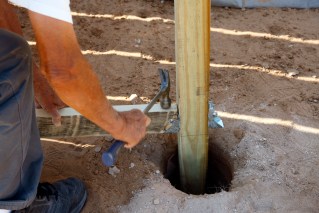How much Australians would be willing to pay for just one more hour of time


Younger viewers use devices to watch what they want when they want. Photo: Getty
Even if time really is just a social construct, we’d still be willing to pay $98 for just one more hour in each day.
That’s the average price Australians put on 60 minutes, but depending on your age and gender, it can vary from $9 to $207, a specialised research project has found.
Women aged 30 to 49 put the biggest value on time (and having more of it) – they’re willing to pay the top dollar for an extra hour in a day.
Meanwhile, retirees and full-time students would pay the least for an extra hour, just $9 and $33 respectively.
(Although perhaps this has something to do with budget constraints.)
Blokes aged 18 to 29 would pay $138 for an hour more, and those with kids would pay $137, versus a childless Australian at $94.
The figures come from NAB’s Wellbeing Insight Report, Time: How we use it and value it. The financial firm first surveyed Australians about their time in 2018, and followed it up in the unprecedented year that was 2020.

With schools running online, many parents were supervising kids while also working from home.
The firm said its research showed a sense of “lack of time” was one of the biggest negative influences on an individual’s overall sense of wellbeing.
“During the pandemic many of us experienced a much less structured and a more distorted sense of time as movement restrictions impacted typical activities, such as going to the office or taking children to sporting events,” the research forward says.
“Many of the ways we typically market time became unworkable due to lockdowns and restrictions on travel and social gatherings.”
Related: Aussie dads doing more parenting in the pandemic
While our perception of time got a right knockabout, with Australia resuming some sort of pre-COVID normal, NAB found a typical week isn’t that different post-pandemic.
The exceptions are that we’re sleeping less and spending more time on household chores and family duties.
Overall, women feel more time pressure than men.
Higher income earners and those with kids also feel they’re under immense pressure.









